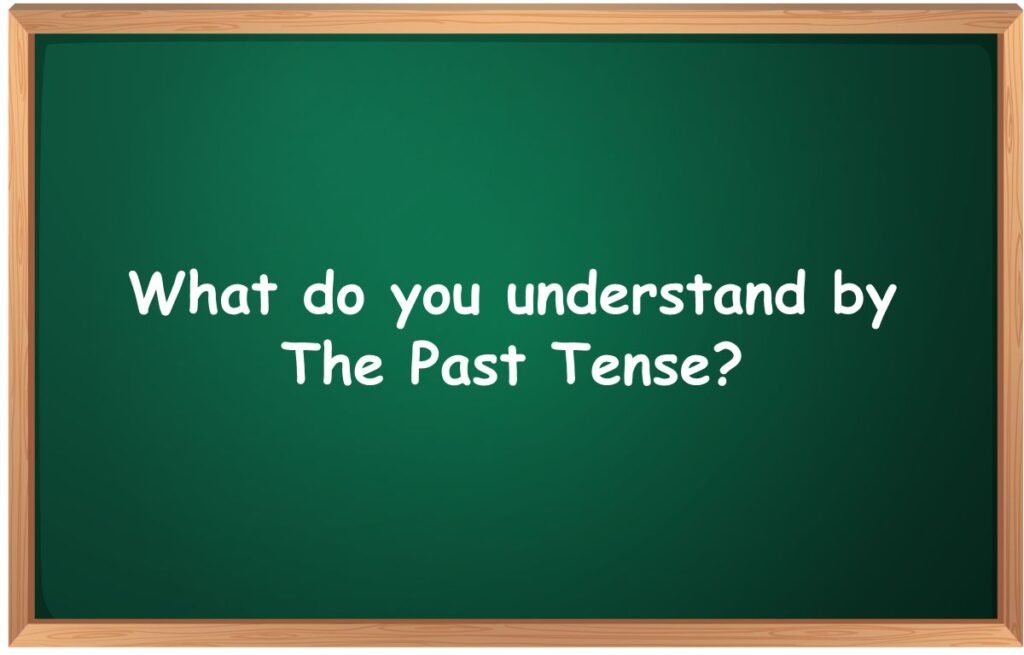Welcome to our comprehensive guide on the Past Tense in English grammar. Here, we delve into the nuances of the Simple Past, Past Continuous, Past Perfect, and Past Perfect Continuous Tenses. Each section is enriched with examples and usage rules to help you master the Past Tense. Let’s embark on this grammatical journey together!
Simple Past Tense
- To express an action that occurred at a particular point in time in the past.
For example:
He wrote a novel last year.
I went to the stadium yesterday.
- To express habits of past time that do not exist now.
For example:
When I was young, I used to study well.
When I lived in Delhi, I used to cook for myself.
- The forms of ‘be’ are used to ask or tell about something or someone.
was – singular, were – plural
For example:
She was an excellent student.
They were told to present the project.
- To express imagination
For example:
If I had wings, I would fly.
If I were the President, I would have changed this law.
Keywords
Last night/week/year….., ago, long ago, back then, just now, yesterday, in 2006, 1995…., etc.
Past Continuous Tense
- To express an action that was happening in the past.
For example:
I was sleeping yesterday.
- To express an action that was happening in the past, past continuous tenses were used and in the meantime some other action took place. That action is written in the simple past tense.
For example:
When the bell rang I was watching TV.
- Generally while is used to connect sentences showing two or more actions that are happening in the past.
For example:
I was reading the newspaper while my brother was painting a picture.
She was singing while he was playing the guitar.
- To describe various events that happened in the past one by one.
For example:
I was reading the newspaper, and suddenly someone knocked at the door. I went to open the door and saw a dog standing there.
- To express an action that was continuous at a given point in the past or between two extremes of the past.
For example:
Yesterday from 4 o’clock to 6 o’clock I was reading a novel.
At 5:00 p.m., they were playing football.
- To show regular development without referring to time.
For example:
It was getting darker.
Keywords
At that moment, at that time, those days, then, as, when, etc.
Past Perfect Tense
- When two interrelated actions happened in the past one after the other then, the action that took place before is mentioned in the past perfect tense. The other action which took place, later on, is expressed using the simple past tense.
For example:
He had seen the ball before he hit it.
She had taken a sip before closing the cap of the bottle.
- To express an unfulfilled wish of the past. The past perfect is generally used with words like wish, rather, if only, as though, as if, etc.
For example:
I wish I had called you yesterday.
If only I had seen the thief.
- To know or express something about an action that had already happened in the past time.
For example:
I apologized because I had not completed my work.
- To express the completion of an action that took place in the past time before another action started.
For example:
When she stopped weeping, everybody had left.
When he entered the room, everybody had had their lunch.
- In direct indirect speech.
For example:
He said, “I have already read this book.”
He said that I had already read this book.
She said, “I have completed my work on time.”
She said that she had completed her work on time.
Past Perfect Continuous Tense
- To express an action that began in the past and remains continuous for a given time duration.
‘since/for/all + time’ is used.
For example:
When my sister came into the room, I had been watching television.
When my mother came she was very tired. She had been working all day.
